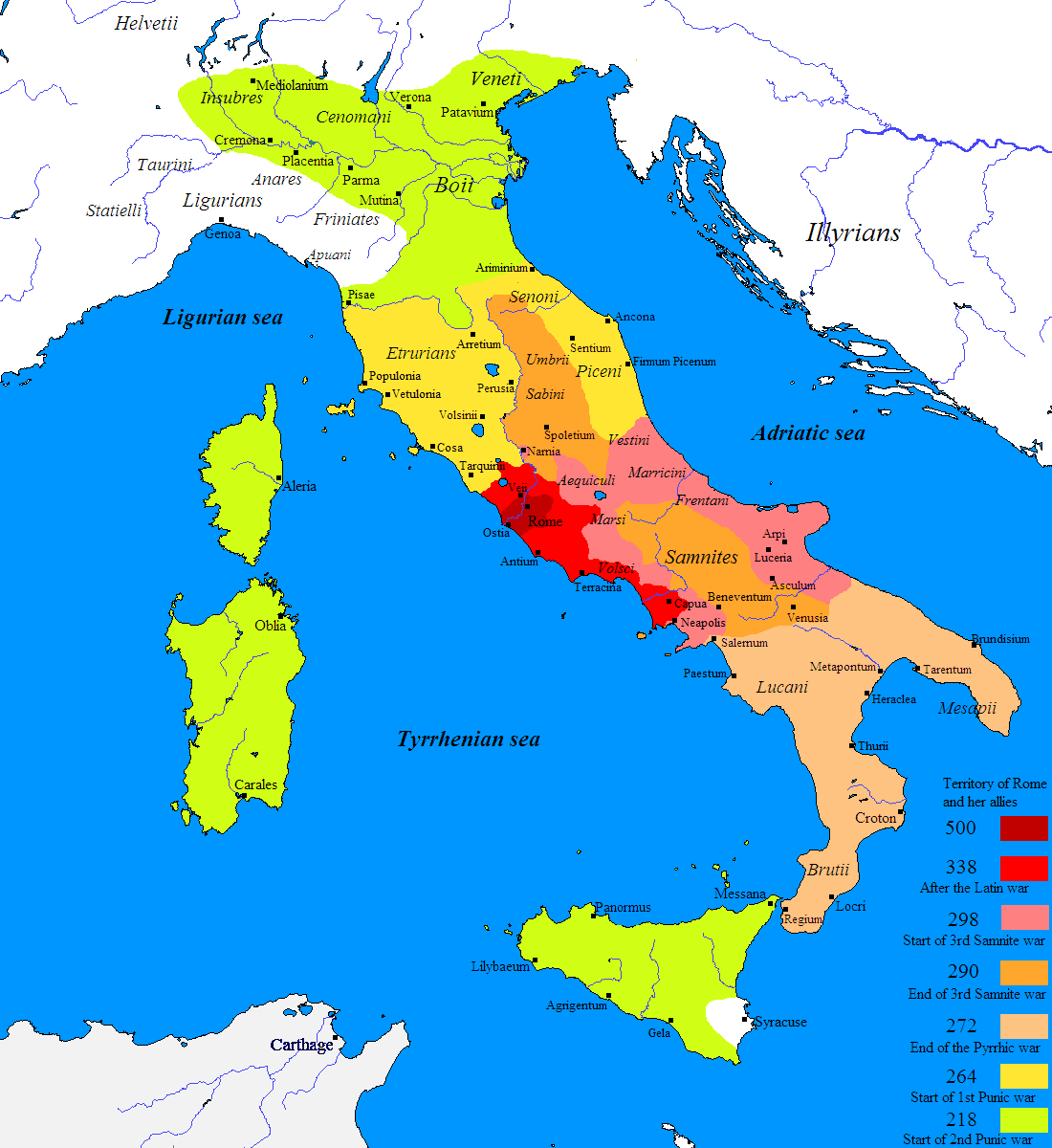298 BC on:
[Wikipedia]
[Google]
[Amazon]
 __NOTOC__
Year 298 BC was a year of the pre-Julian Roman calendar. At the time it was known as the Year of the Consulship of Barbatus and Centumalus (or, less frequently, year 456 '' Ab urbe condita''). The denomination 298 BC for this year has been used since the early medieval period, when the
__NOTOC__
Year 298 BC was a year of the pre-Julian Roman calendar. At the time it was known as the Year of the Consulship of Barbatus and Centumalus (or, less frequently, year 456 '' Ab urbe condita''). The denomination 298 BC for this year has been used since the early medieval period, when the
Anno Domini
The terms (AD) and before Christ (BC) are used to label or number years in the Julian and Gregorian calendars. The term is Medieval Latin and means 'in the year of the Lord', but is often presented using "our Lord" instead of "the Lord", ...
calendar era
A calendar era is the period of time elapsed since one '' epoch'' of a calendar and, if it exists, before the next one. For example, it is the year as per the Gregorian calendar, which numbers its years in the Western Christian era (the Copti ...
became the prevalent method in Europe for naming years.
Events
By place
Roman Republic
*Third Samnite War
The First, Second, and Third Samnite Wars (343–341 BC, 326–304 BC, and 298–290 BC) were fought between the Roman Republic and the Samnites, who lived on a stretch of the Apennine Mountains south of Rome and north of the Lucanian tribe.
...
:
:* The Lucanians seek Roman aid against the invasion of the Samnites. In agreeing to take the Lucanians under their protection, the Romans commit to war against the Samnites.
:* The consul Lucius Cornelius Scipio Barbatus
Lucius Cornelius Scipio Barbatus (c. 337 BC270 BC) was one of the two elected Roman consuls in 298 BC. He led the Roman army to victory against the Etruscans near Volterra. A member of the noble Roman family of Scipiones, he was the father of L ...
fights a costly indecisive battle against the Etruscans
The Etruscan civilization () was developed by a people of Etruria in ancient Italy with a common language and culture who formed a federation of city-states. After conquering adjacent lands, its territory covered, at its greatest extent, rou ...
near Volaterrae.
:* The consul Gnaeus Fulvius Maximus Centumalus
Gnaeus Fulvius Maximus Centumalus ( BC) was a military commander and politician from the middle period of the Roman Republic, who became consul in 298 BC. He fought in the final wars against the Etruscans and later led armies in the Third Samnit ...
invades Samnium and defeats the Samnites near Bovianum. He then captures both this city and Aufidena
Alfedena ( la, Aufidena or Aufidenia, Abruzzese: ') is a ''comune'' in the province of L'Aquila of the Abruzzo region of central Italy. It is located in the Abruzzo, Lazio and Molise National Park in the upper Sangro valley, near the Monti d ...
.
Sicily
*Agathocles Agathocles ( Greek: ) is a Greek name, the most famous of which is Agathocles of Syracuse, the tyrant of Syracuse. The name is derived from , ''agathos'', i.e. "good" and , ''kleos'', i.e. "glory".
Other personalities named Agathocles:
*Agathocles ...
, king of Syracuse, assists the Italian Greeks against the Bruttians The Bruttians (alternative spelling, Brettii) ( la, Bruttii) were an ancient Italic people. They inhabited the southern extremity of Italy, from the frontiers of Lucania to the Sicilian Straits and the promontory of Leucopetra. This roughly corresp ...
and supports the Greeks against the Romans.
Egypt
*Ptolemy
Claudius Ptolemy (; grc-gre, Πτολεμαῖος, ; la, Claudius Ptolemaeus; AD) was a mathematician, astronomer, astrologer, geographer, and music theorist, who wrote about a dozen scientific treatises, three of which were of importance ...
gives his stepdaughter Theoxena in marriage to Agathocles, the tyrant of Syracuse (in south-eastern Sicily
(man) it, Siciliana (woman)
, population_note =
, population_blank1_title =
, population_blank1 =
, demographics_type1 = Ethnicity
, demographics1_footnotes =
, demographi ...
).
* Ptolemy finally brings the rebellious region of Cyrene under his control. He places the region under the rule of his stepson Magas.
India
*Bindusara
Bindusara (), also Amitraghāta or Amitrakhāda (Sanskrit: अमित्रघात, "slayer of enemies" or "devourer of enemies") or Amitrochates (Greek: Ἀμιτροχάτης) (Strabo calls him Allitrochades (Ἀλλιτροχάδης)) ...
succeeds his father Chandragupta Maurya as emperor of the Mauryan Empire.
China
*King Huai of Chu
King Huai of Chu (, died 296 BC) was from 328 to 299 BC the king of the state of Chu during the Warring States period of ancient China. He was born Xiong Huai () and King Huai (懷, a different Chinese character) was his posthumous title.
Kin ...
visits the State of Qin to negotiate peace but is detained.
Births
*Deaths
References
{{DEFAULTSORT:298 Bc